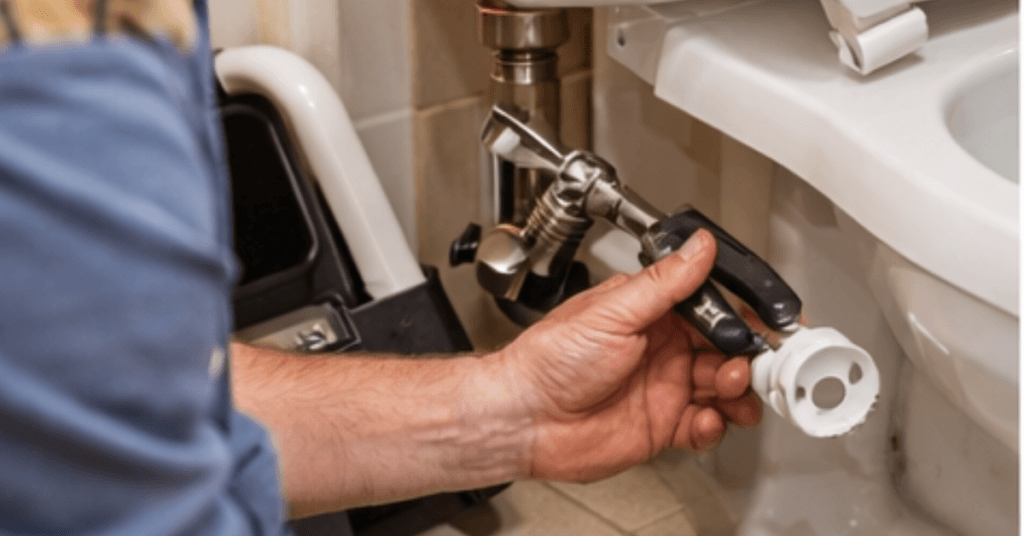
High water pressure might sound like a good thing. After all, who doesn’t enjoy a strong shower or a quick-filling sink?
But in reality, excessive water pressure can cause serious plumbing issues, increase your utility bills, and even shorten the lifespan of your home’s appliances.
If you live in Central Oregon, where varying water supply conditions can sometimes create pressure fluctuations, it’s worth learning how to spot the signs of high water pressure and how to address them.
Understanding Water Pressure
Water pressure is the force that pushes water through your pipes and into your fixtures. It’s measured in pounds per square inch (psi).
According to the U.S. Environmental Protection Agency (EPA), residential water pressure should typically range between 40–60 psi. Anything significantly higher can put unnecessary stress on your plumbing system.
Signs Your Water Pressure Might Be Too High
If you’re not walking around your home with a pressure gauge, you can still detect potential high-pressure problems by watching for these symptoms:
- Banging Pipes (Water Hammer)
Loud banging noises in your pipes when you shut off water suddenly can mean your system is under too much strain. - Leaky Faucets and Fixtures
Even brand-new fixtures may start to drip if they’re constantly exposed to excessive pressure. - Frequent Appliance Breakdowns
Dishwashers, washing machines, and water heaters can all suffer damage from sustained high water pressure. - Shortened Water Heater Life
Excessive pressure can cause your water heater tank to wear out prematurely. - Sudden Pipe Leaks
Older pipes, in particular, can burst if exposed to higher-than-recommended pressure levels.
Why High Water Pressure Happens in Central Oregon
Here in Central Oregon, several factors can lead to elevated water pressure:
- Municipal Supply Changes – City water systems sometimes operate at high pressure to ensure delivery across large areas.
- Living on a Hill – Homes at lower elevations often receive higher pressure due to gravity-fed systems.
- New Developments – When new neighborhoods are added, adjustments to water lines can affect pressure.
- Pressure Regulator Issues – If your home has a faulty or aging pressure reducing valve (PRV), it might not be doing its job.
Why High Water Pressure is a Problem
While high pressure can be satisfying in the short term, it comes with long-term costs:
- Higher Water Bills – Excess water flow means more gallons consumed per minute.
- Plumbing Wear and Tear – Pipes, seals, and joints break down faster.
- Increased Risk of Leaks – Even small leaks can lead to costly water damage over time.
- Wasted Water – As the EPA notes, water efficiency is critical for both environmental conservation and household savings.
How to Test Your Home’s Water Pressure
You can check your water pressure in a few ways:
- Use a Pressure Gauge – Attach it to an outdoor spigot, turn on the water, and read the psi.
- Ask a Professional – At Einstein Pros, we use calibrated tools to measure and adjust water pressure precisely.
- Request a City Test – Some municipalities will check pressure for you at no charge.
If your readings consistently exceed 60 psi, it’s time to consider corrective action.
How to Fix High Water Pressure
1. Install or Adjust a Pressure Reducing Valve (PRV)
A PRV is designed to regulate incoming water from the municipal supply. If you already have one, it may need adjusting or replacing. Most are factory-set at around 50 psi, which is safe for most homes.
2. Schedule Routine Plumbing Inspections
An annual inspection by a trusted Central Oregon plumbing expert like Einstein Pros can catch high-pressure issues early.
3. Replace Old Fixtures with WaterSense Models
The EPA’s WaterSense-labeled fixtures are designed to operate efficiently even at lower pressures, helping you save water without sacrificing performance.
4. Protect Your Appliances
Consider installing water hammer arrestors or expansion tanks to safeguard sensitive appliances from pressure spikes.
Preventing Future Problems
Once you’ve corrected high water pressure, it’s important to maintain it:
- Test Annually – A simple gauge test once a year can prevent costly damage.
- Watch for New Symptoms – Leaks, unusual sounds, or appliance failures may indicate the issue has returned.
- Stay Educated – The EPA WaterSense program offers valuable homeowner tips.
Final Thoughts
High water pressure isn’t just a minor inconvenience — it’s a hidden hazard for your home’s plumbing system. By keeping your water pressure within the recommended range, you can extend the life of your pipes, save money on repairs, and conserve water.
If you suspect your home in Bend, Redmond, or anywhere in Central Oregon has water pressure issues, Einstein Pros can help diagnose the problem and provide long-lasting solutions.